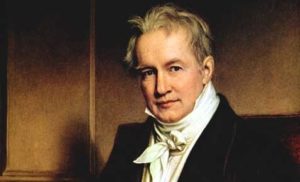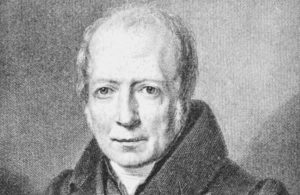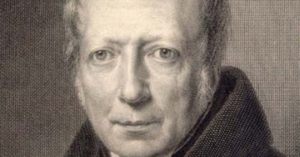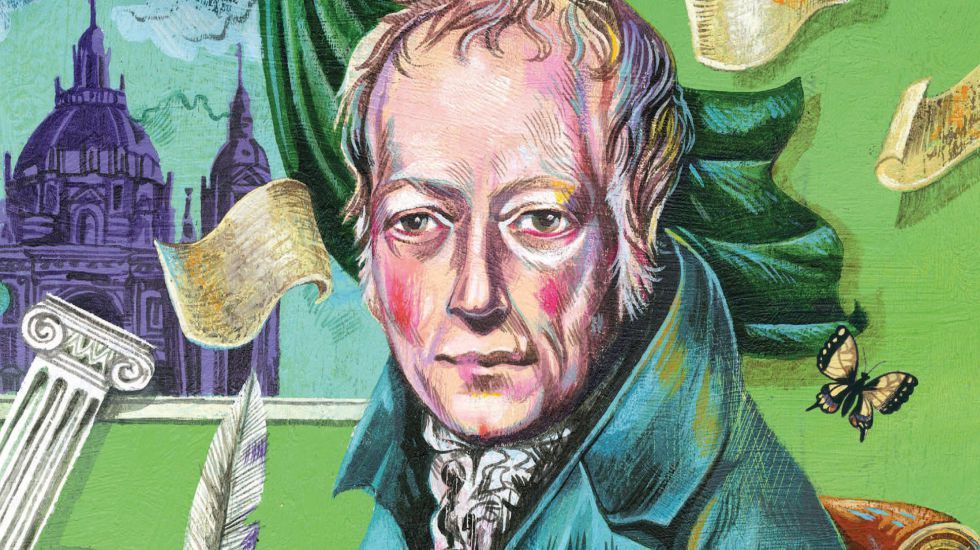Friedrich Wilhelm Christian Karl Ferdinand von Humboldt was a Prussian philosopher, linguist, government functionary, diplomat, and founder of the Humboldt University of Berlin, which was named after him in 1949. Take a look below for 27 more fun and interesting facts about Wilhelm von Humboldt.
1. Humboldt is especially remembered as a linguist who made important contributions to the philosophy of language, ethnolinguistics and to the theory and practice of education.
2. He is widely recognized as having been the architect of the Humboldtian education ideal, which was used from the beginning in Prussia as a model for its system of education and eventually in countries such as the United States and Japan.
3. His younger brother, Alexander von Humboldt, was famous as a geographer, naturalist and explorer.
4. Humboldt was born in Potsdam, Margraviate of Brandenburg, and died in Tegel, Province of Brandenburg.

5. In June 1791, he married Caroline von Dacheroden.
6. He had eight children, of whom five, one of them Gabriele von Humboldt, survived to adulthood.
7. Humboldt was a philosopher; he wrote “The Limits of State Action” in 1791 to 1792, which is one of the boldest defenses of the liberties of the Enlightenment.
8. His “The Limits of State Action” influenced John Stuart Mill’s essay “On Liberty” through which von Humboldt’s ideas became known in the English-speaking world.
9. Humboldt outlined an early version of what Mill would later call the “harm principle”.
10. His house in Rome became a cultural hub, run by Caroline von Humboldt.

11. Humboldt had been home schooled and never finished his comparably short university studies at the universities of Frankfurt and Gottingen.
12. Even though he was home schooled, he became one of the most influential officials in German education.
13. Humboldt had intended to become Minister of Education, but failed to attain that position.
14. The Prussian King asked him to leave Rome in 1809 and to lead the directorate of education under Friedrich Ferdinand Alexander zu Dohna-Schlobitten.
15. Humboldt installed a standardized system of public instruction, from basic schools till secondary education, and founded Berlin University.
16. He imposed a standardization of state examinations and inspections and created a special department within the ministry to oversee and design curricula, textbooks and learning aids.
17. Humboldt’s educational ideal was entirely colored by social considerations. He never believed that the, “human race could culminate in the attainment of a general perfection conceived in abstract terms.”

18. As a successful diplomat between 1802 and 1819, Humboldt was the plenipotentiary Prussian minister at Rome from 1802.
19. He was the ambassador at Vienna from 1812, during the closing struggles of the Napoleonic Wars.
20. Humboldt was at the congress of Prague, where he was instrumental in drawing Austria to ally with Prussia and Russia against France.
21. He was a signer of the peace treaty at Paris and the treaty between Prussia and defeated Saxony.
22. The increasingly reactionary policy of the Prussian government made him give up political life in 1819; and from that time forward he devoted himself solely to literature and study.
23. Humboldt was an adept linguist and studied the Basque language.
24. He translated Pindar and Aeschylus into German.

25. He is credited with being the first European linguist to identify human language as a rule-governed system, rather than just a collection of words and phrases with meanings.
26. Humboldt has been credited as an originator of the linguistic relativity hypothesis, which is more commonly known as the Sapir-Whorf hypothesis, developed by linguists Edward Sapir or Benjamin Whorf a century later.
27. Humboldt died while preparing his greatest work, on the ancient Kawi language of Java, but its introduction was published in 1836, as “The Heterogeneity of Language and its Influence on the Intellectual Development of Mankind.”




